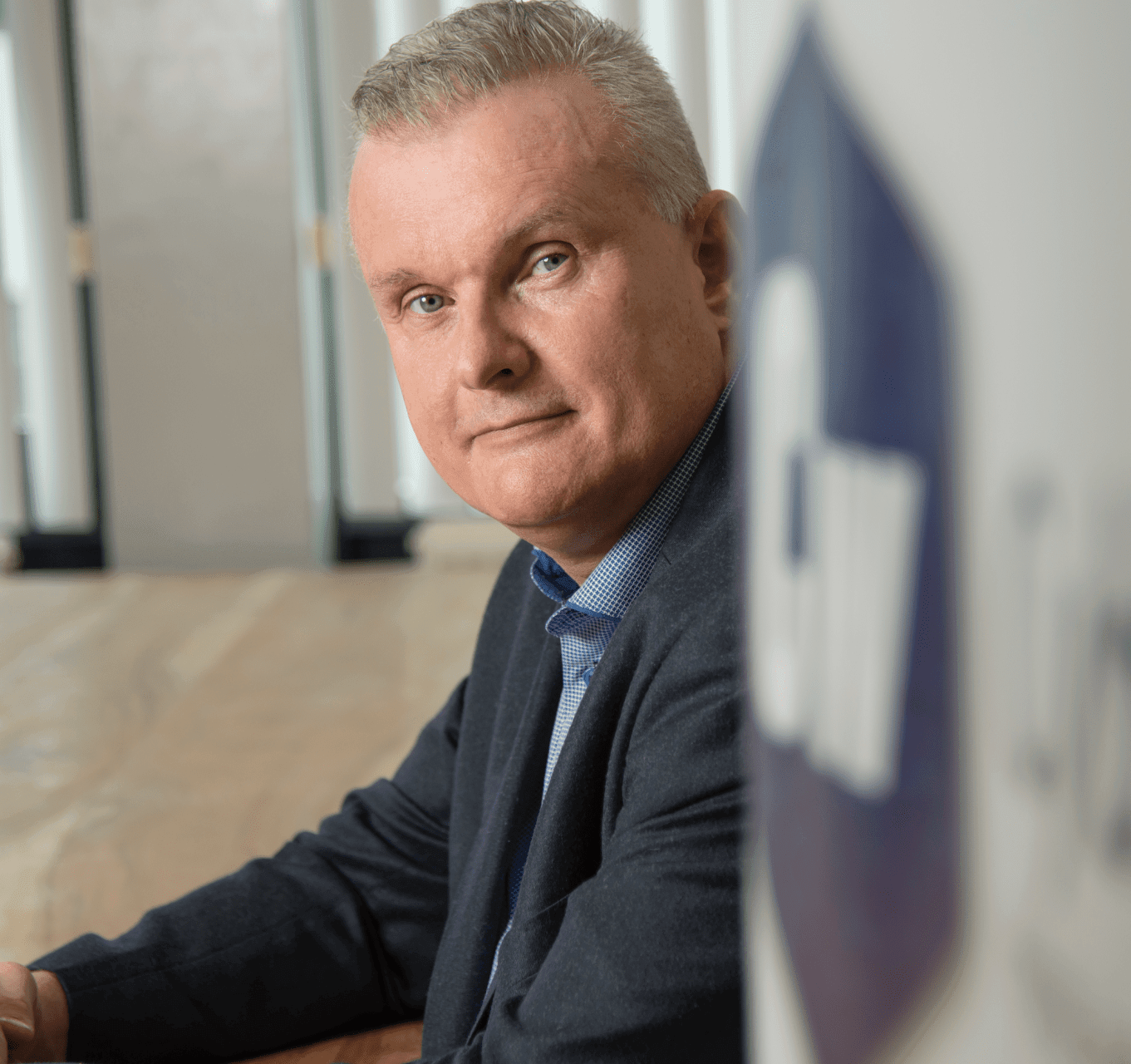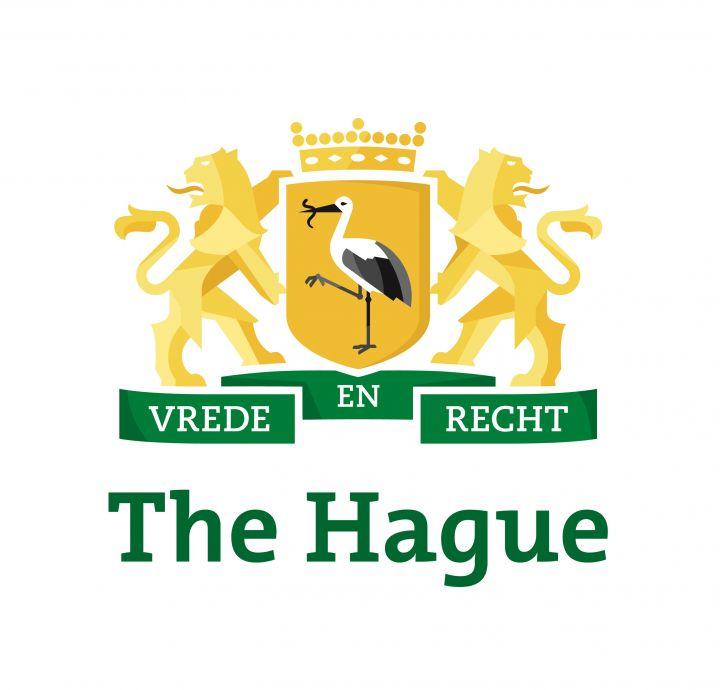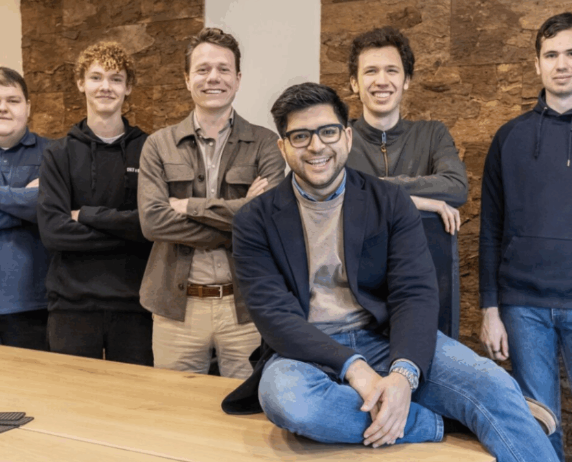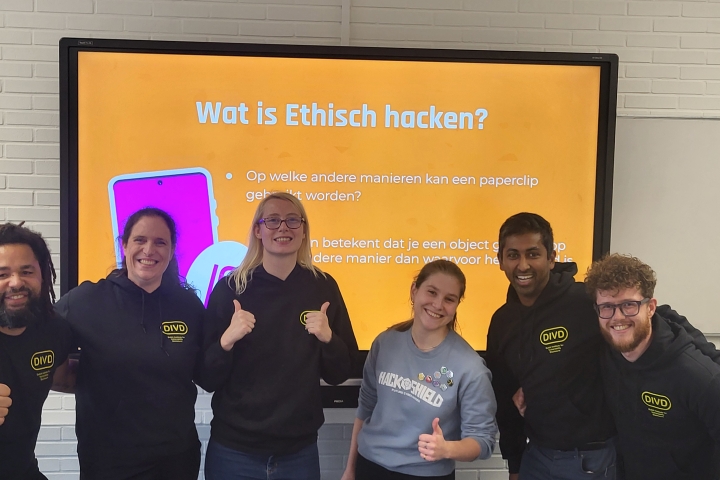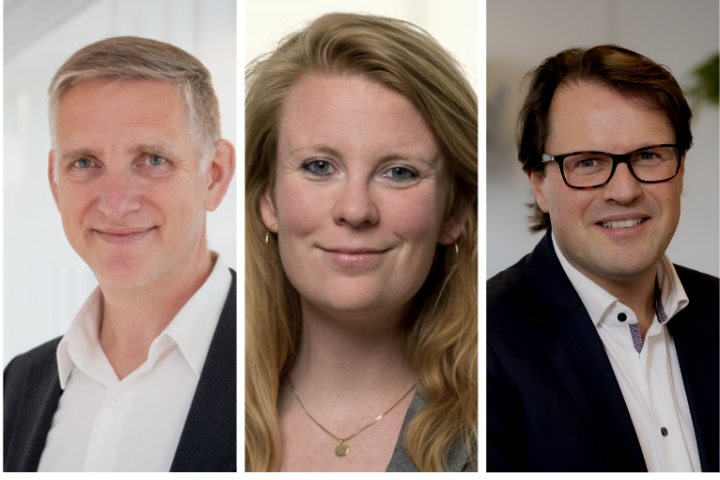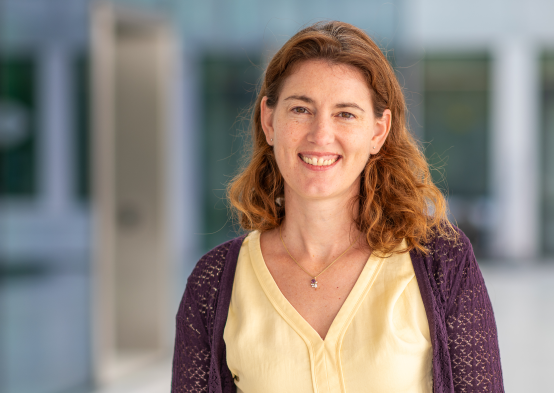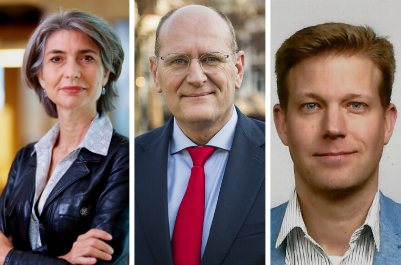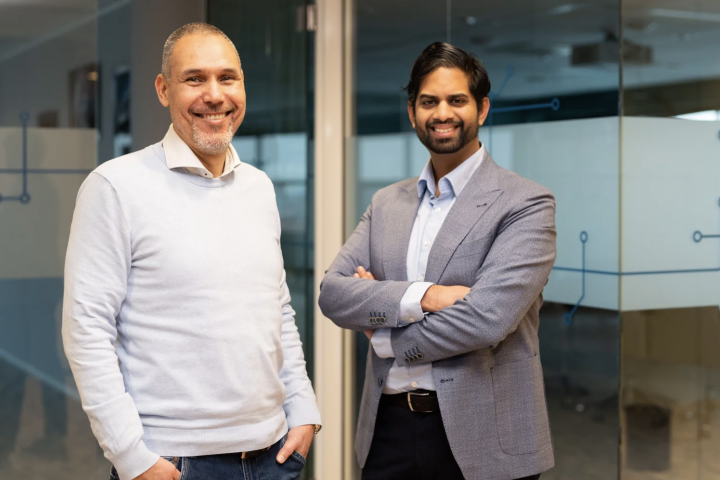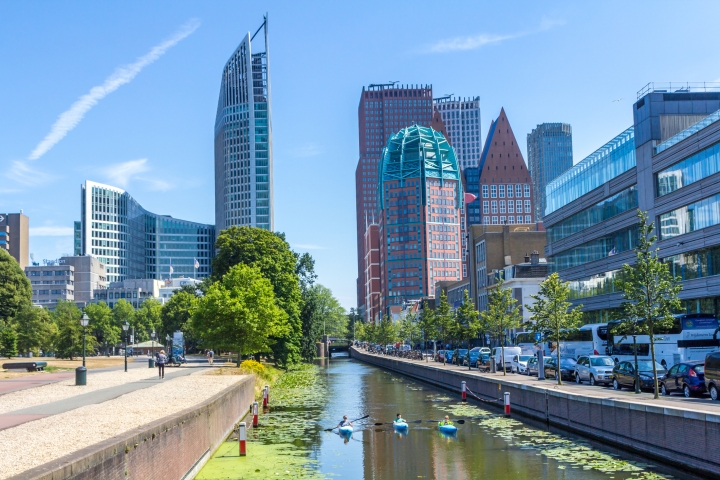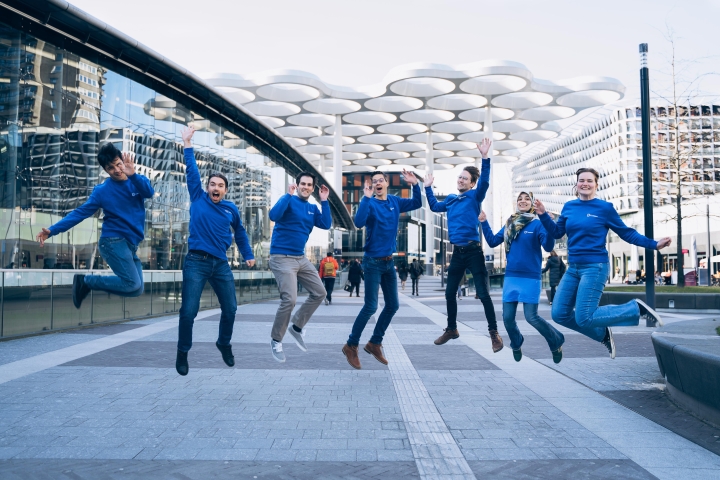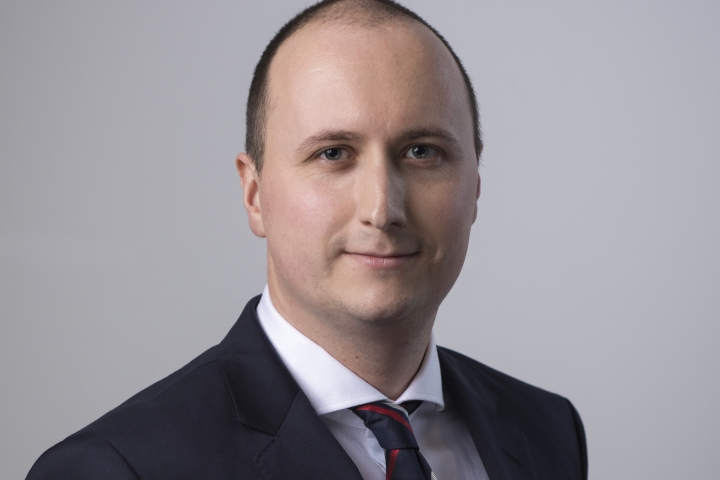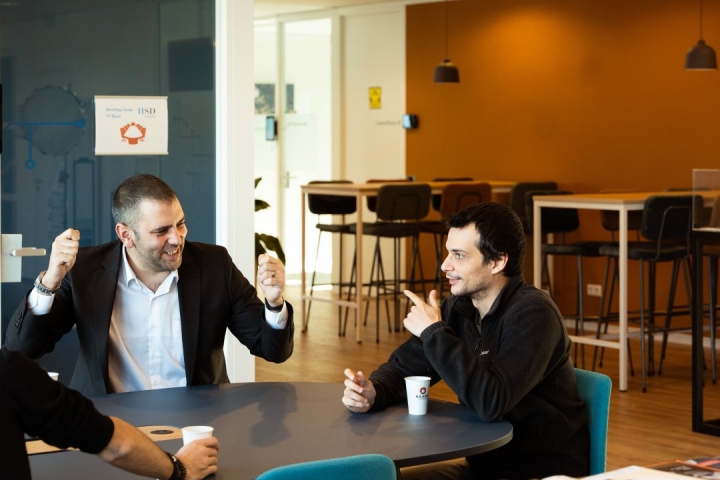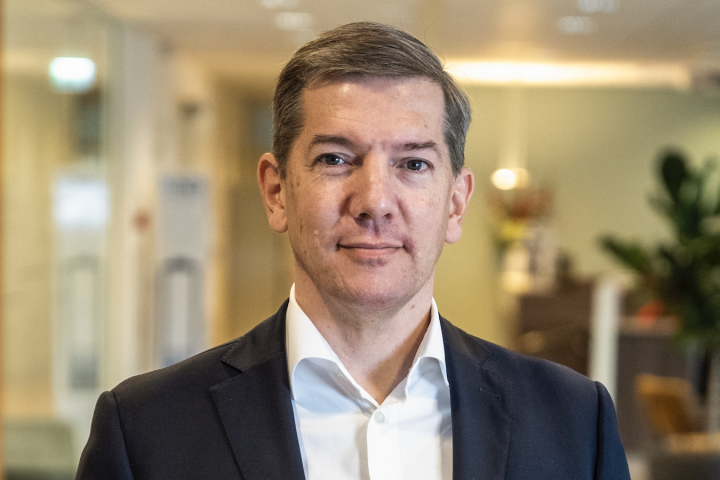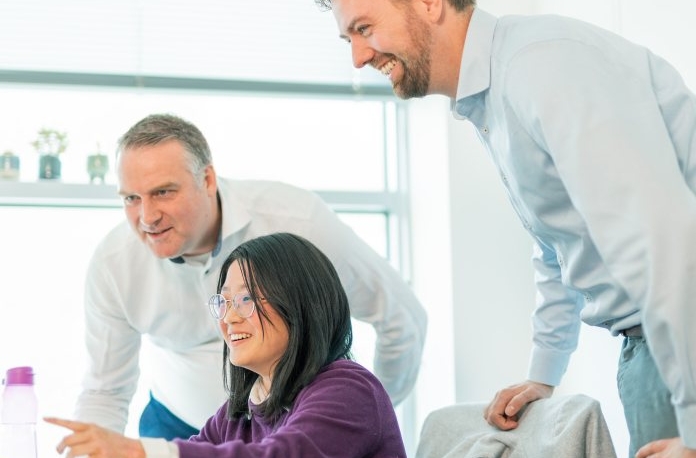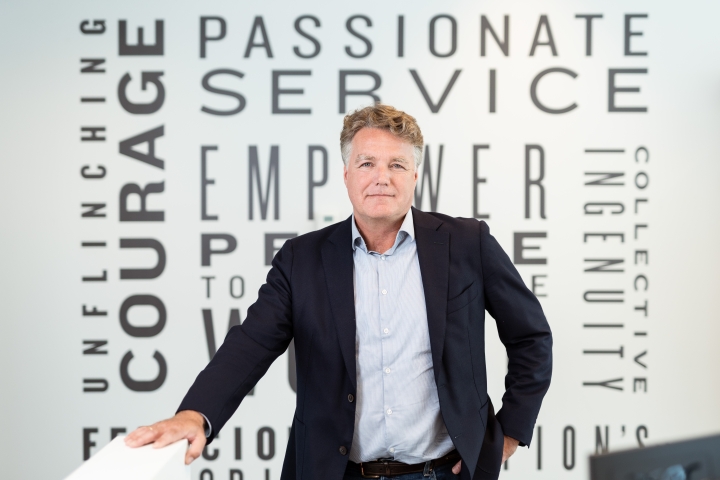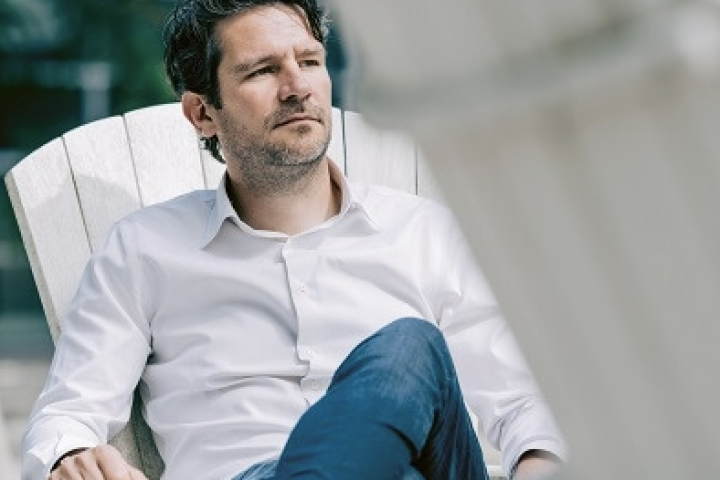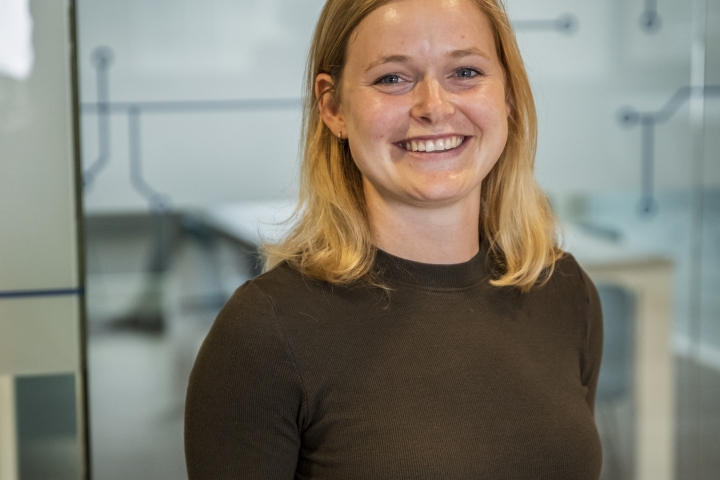Cyberwerf: Students Working as SME Cybersecurity Consultants
Cyberwerf is a programme that started at the Security Field Lab, with the support of the Economic Board of The Hague, the Municipality of The Hague and ROC Mondriaan. This programme allows vocational level (mbo-) students to work as SME cybersecurity consultants. HSD is one of the initiators and is the connecting force to cybersecurity service providers.
Via a cybersecurity scan that the vocational level students developed themselves, SMEs are provided with insights regarding their digital strengths and weaknesses. The students are taught to give advice to entrepreneurs to gain digital strength. Their ability to work safely digitally comes in handy when placing, managing, maintaining and programming of hardware and networks. Cybersecurity studies are more common in higher levels of education. Cyberwerf intentionally targets vocational level students, because they are often responsible of executing tasks and are often the first point of contact for SMEs. The goal of Cyberwerf is to develop a hybrid education style that is able to perform independently with financial aid of affiliated HSD partners. ROC Mondriaan, being an HSD-partner, is closely involved in this project. HSD Office is the connecting force to other partners, to develop a sturdy and viable Cyberwerf along with the Security Field Lab, ROC Mondriaan and students. This project is executed in a manner that allows for other locations in the country to adapt it.
Place for learning and experience
The Cyberwerf project started in 2018 in the living lab at industrial estate Zichtenburg, Kerketuinen en Dekkershoek (ZKD) in The Hague. Social, physical and digital security problems are getting together there. Security Field Lab (SFL) is working to improve the liveability and safety at such locations. Shopping centres, real estate areas and other locations with the same characteristics are suitable for Cyberwerf and a living lab of Security Field Lab. The function as a place for learning and experiences remains central. This is why there is a close collaboration with vocational and higher-level educational facilities within the region. New and existing technologies and theories are put into practice by the students and combined into new applications.
Approach
SFL brings the human side of security, behavioural influencing, technology together. Within the living lab, students get specific assignments regarding these perspectives. The assignments are provided by local entrepreneurs and partners of the Security Field Lab, with HSD-partners among them. Security Field Lab is financed by creator Fokko Mellema himself and has the objective to create a hybrid educational system for vocational and higher-level students. SMEs can use this educational system as a research- and testing facility in the field of security and cybersecurity.
Views of Participants
Lucas Schotte, from The Hague, attended ICT education at ROC Mondriaan. During his time at school, the education curriculum still existed of classical and theoretical classes with little attention for cybersecurity. Via the education programme ‘P@ct’ practical choice electives on cybersecurity have been added, amongst Cyberwerf. Read the full interview with Lucas
"During my studies at ROC Mondriaan I got the opportunity to take part in an elective: Cyberwerf. Doing practical experience is important to get better insight into the cybersecurity field. It gives you an advantage after graduating. So, I was very willing to take part in this elective! During the course I have collaborated with five large companies in The Hague to develop a scan to assess the state of digital security of SMEs. Based on the ISO 27001 roadmap of the Digital Trust Centre (DTC)."
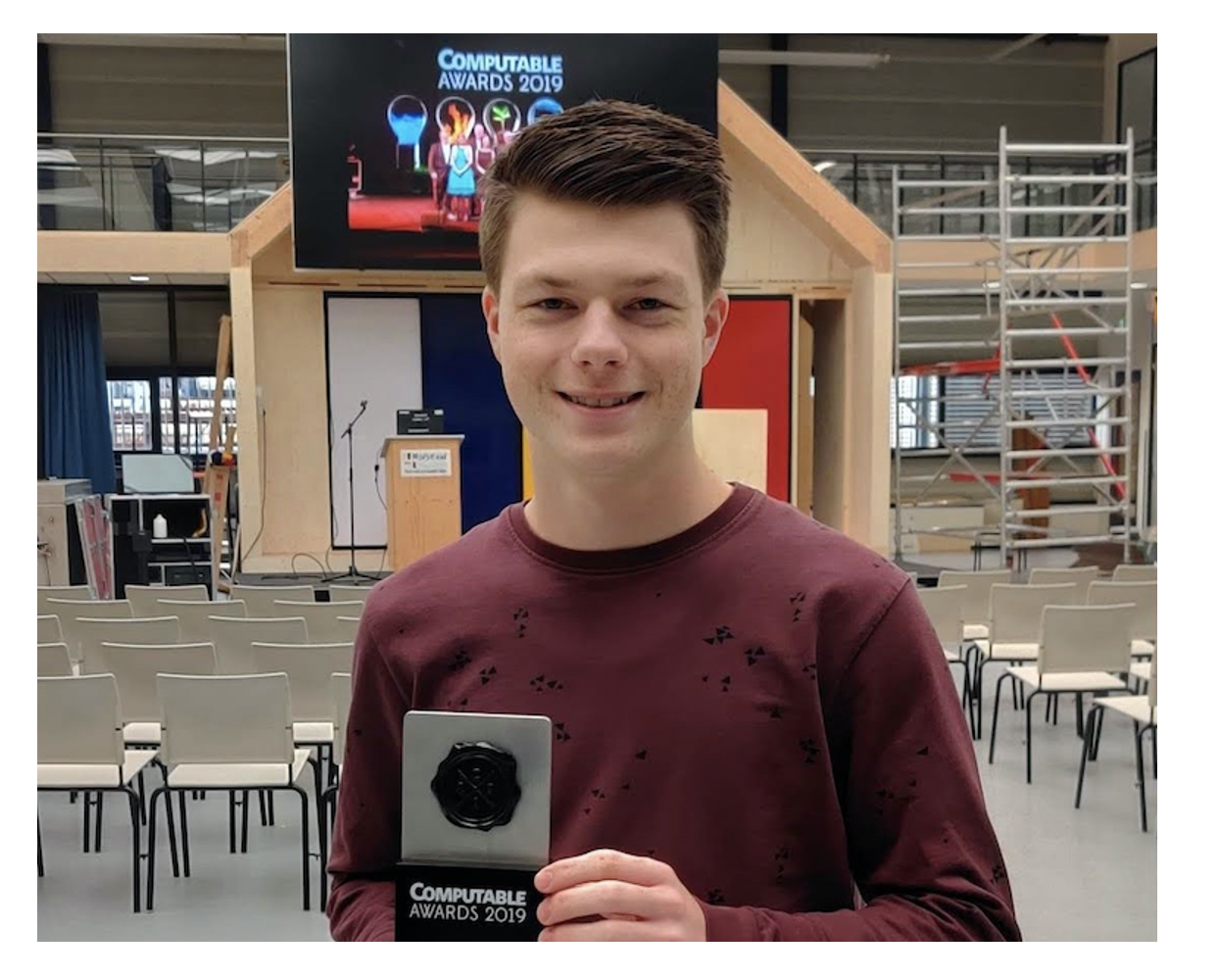 “I love the profession”, says young professional Colin Bouwer. “When asked if I wanted to join Cyberwerf, I immediately said 'yes'. We have carried out baseline measurements at a number of SMEs to see what the level of digital security is. Dredge. I can't make it more beautiful. Not everyone is aware of cybersecurity because they don't know it's important. We have given the entrepreneurs insight and advice on where improvement is possible. Yet many of them consciously take risks, because they think it's not that bad, the chance is small, and they will solve it if they are actually hacked. Ten years ago, you could get away with such an attitude, but not anymore.” Read the full interview with Colin
“I love the profession”, says young professional Colin Bouwer. “When asked if I wanted to join Cyberwerf, I immediately said 'yes'. We have carried out baseline measurements at a number of SMEs to see what the level of digital security is. Dredge. I can't make it more beautiful. Not everyone is aware of cybersecurity because they don't know it's important. We have given the entrepreneurs insight and advice on where improvement is possible. Yet many of them consciously take risks, because they think it's not that bad, the chance is small, and they will solve it if they are actually hacked. Ten years ago, you could get away with such an attitude, but not anymore.” Read the full interview with Colin
SME entrepreneur Sief Wauben from Wauben Productie BV is one of the companies that participated in Cyberwerf. Allowing ROC-students to research the company’s digital security. Read the full interview with Sief
"This kind of research should be done more often,’’ says director Wauben. “They look at how we perform on our cybersecurity measures and confront us with our weaknesses: measures that we have not yet implemented. In our case, it seemed that we had everting into place and did not have to take extra measures.” Wauben really enjoyed the collaboration with students. “Collaboration between businesses and education institutes is in my view indispensable for the digital security of local businesses."
Innovations
Apart from Cyberwerf, other innovations take place in the living lab ZKD. A few examples:
- Cameras are a nifty tool to improve safety and to increase the chance of being caught. Students are researching the management and maintenance of cameras, the quality of the footage, where to place them, the angle and height, combined with organisation factors like key management in times of a threat, sharing footage and new services as ‘security-as-a-service’. They also look into the multiple options to use (mobile) cameras, by combining them with heat sensor, smell- and sound sensors and other smart (IoT-)sensors.
- Students are creating a checklist for fire safety with the fire department for corporate buildings. This is placed into an app. Furthermore, they offer a free fire safety scan and a report. This information is interesting for the fire department to get the picture of the industry estate. Along with this, Security Field Lab researches the possibility to include tools in the field of security and cybersecurity into an app. A virtual Prio1 Alert Centre is develop that provides alerts with possible approaches and feedback.
Read in Dutch.

